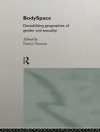This specially curated collection features five reviews of current and key research on vertical farming in horticulture.
The first chapter describes and evaluates technologies and methods for growing edible plants indoors and presents a survey of selected commercial vertical farms currently operating that employ them.
The second chapter explores the benefits of plant factories with artificial lighting (PFALs). The chapter assesses resource consumption, costs and performance of current PFALs, as well as methods for reducing resource consumption and production costs.
The third chapter explores recent advances in the ornamentals industry, such as vertical propagation systems and LED technology, and how these can be implemented to meet the challenges of a changing marketplace and societal demands.
The fourth chapter describes the advantages and disadvantages of hydroponics, along with the equipment and substrates used, and also examines soilless/hydroponic growing systems for vegetables.
The final chapter describes the most recent innovation in hydroponic technologies for plant cultivation within cities and their adaptability to the urban fabric.
Inhaltsverzeichnis
Chapter 1 – Vertical farming systems for urban agriculture: Dickson Despommier, Columbia University, USA; 1 Introduction 2 The vertical farm: from inception to reality 3 Vertical farm technologies 4 Indoor lighting for growing crops in a controlled environment 5 Nutrients for hydroponics and aeroponics 6 Challenges 7 Future trends 8 Where to look for further information 9 References
Chapter 2 – Towards sustainable plant factories with artificial lighting (PFALs): from greenhouses to vertical farms: Toyoki Kozai, Japan Plant Factory Association, Japan; Yumiko Amagai, Chiba University, Japan; and Eri Hayashi, Japan Plant Factory Association, Japan; 1 Introduction 2 Characteristics of PFALs 3 Resource consumption by resource elements: simulation studies 4 Production cost and its components 5 Reducing electricity consumption and improving cost performance 6 Challenges for the next-generation smart PFALs 7 Future trends and conclusion 8 Acknowledgements 9 References
Chapter 3 – Advances in protected cultivation of ornamentals: James E. Faust, Clemson University, USA; 1 Introduction 2 Light-emitting diode (LED) lighting systems 3 Manipulation of plant growth and development 4 Sustainable practices and renewable inputs 5 Case study: propagation of ornamentals in a vertical propagation area 6 Conclusion and future trends 7 Where to look for further information 8 References
Chapter 4 – Developments in soilless/hydroponic cultivation of vegetables: Dimitrios Savvas, Agricultural University of Athens, Greece; and Damianos Neocleous, Ministry of Agriculture, Natural Resources and Environment, Cyprus; 1 Introduction 2 Advantages and disadvantages of hydroponics 3 Equipment 4 Substrates 5 Soilless/hydroponic growing systems for vegetables 6 Crop nutrition and nutrient solution (NS) 7 Product quality in hydroponics 8 Soilless cultivation specifics of greenhouse vegetable crops 9 Irrigation tips in soilless cultivation 10 Plant protection practices in soilless cultivation 11 Future research and technological developments in hydroponics 12 References
Chapter 5 – Advanced hydroponics design for plant cultivation in cities: Giuseppina Pennisi, Alessandro Pistillo, Elisa Appolloni, Francesco Orsini and Giorgio Gianquinto, DISTAL – University of Bologna, Italy; 1 Introduction 2 Rooftop farming systems 3 Vertical farming with artificial lighting 4 Innovative SCS for urban agriculture: aquaponics 5 Case study: innovative urban farming systems through the international student competition: Urban Farm 6 Summary and future trends 7 Where to look for further information 8 References
Über den Autor
Dr Eri Hayashi is the President of the JPFA, where she is also the Director of International Relations and Consulting. Eri was Research Project Leader for a national project on Artificial Intelligence- and Phenotyping-based Smart Plant Factories with Artificial Lighting (PFALs). She leads a number of international projects on technology development, has given presentations at a number of international conferences, and has written widely on the topic of smart plant factories. She was a co-convener of the Symposium of Advances in Vertical Farming at the 31st International Horticultural Congress (IHC 2022). She led the JPFA in organizing the first JPFA International Symposium on Plant Factory (ISPF 2023) at Kashiwanoha, Japan.












